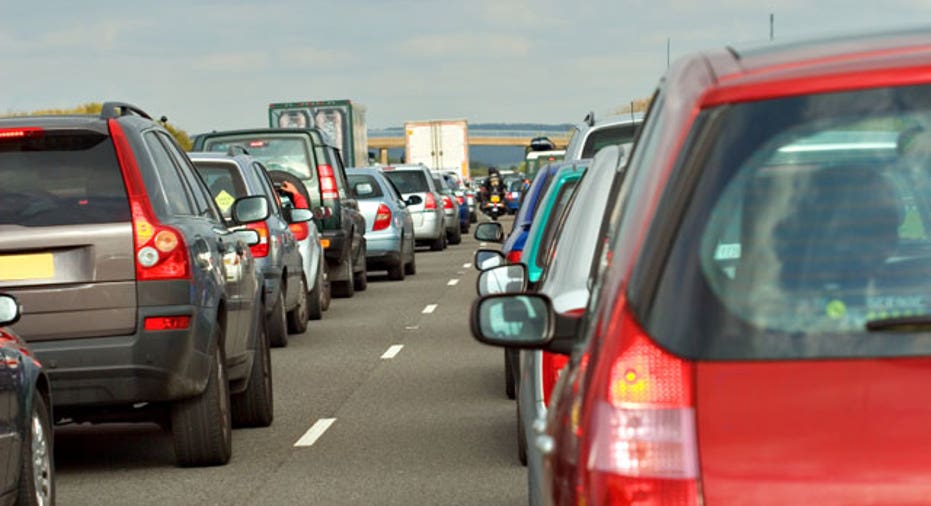Tips for Landing a Good, Reliable Used Car When You Have Bad Credit

Dear New Frugal You,
I'm a single, working mom who struggles with money. My old car is falling apart and needs to be replaced. My credit score isn't good so I can't afford car payments. I have managed to save about $3,000. Is there a way to find a dependable car for not too much money? And, how would I find one like that?
- Soon To Be Walking Wendy
Dear Wendy,
You're right. Reliable transportation is important to a single, working mom. And, with bad credit, car payments could really chew up your paycheck. There are ways to find a reliable car for a reasonable price. Let's see if we can develop a plan to find you a car in the $3,000 range.
But before we do that, let's make sure that you really need to replace the car. It could be that your best ride is the one that you already have, but with some repairs done. Unless you have a major problem (such as engine or transmission) you can do a lot of repairs with $3,000.
So don't assume you need a different car until you've checked out repairing your current one. One way to do that is to ask a mechanic to look at it. Have him tell you what would need to be repaired to make it reliable again and how much that would cost. It could be that you're right and need to replace it. But, if you haven't already, ask the question before you begin car shopping.
Suppose you do need a newer car. Let's think about where you can find a good, cheap car. Unfortunately, that's not as easy as it was a few years ago. About 680,000 older cars were crushed in the federal "cash for clunkers" program that ended in 2010. So there are fewer cheap cars available to buyers like you.
You're not likely to be successful on a used car lot. For them to make money on a $3,000 car, they need to buy it for considerably less. Which means you get less car. So a private party sale is your best bet. The trick is finding the right one.
Naturally, you'll want to look at the local classifieds and Craigslist.org. But, I'd also suggest telling everyone you know that you're looking for a cheap, reliable used car. Tell friends, co-workers, mothers you know from your kids' school. Anyone could be the lead that turns up a good car for you. Even stop at local auto repair centers and ask if they know of any good used cars.
You will be tempted to rush, but avoid the temptation, even if you have to nurse your old ride for awhile. Remember that a mistake could be costly. It's taken time to accumulate the savings you'll be using. You don't want to waste it on the wrong ride.
In your price range, any car will have some issues. You can't buy a $3,000 car and not expect to spend some money on repairs each year. The trick is to keep the problems to cosmetic or simple mechanical issue and avoid major, expensive defects.
So how can you do that? Begin by avoiding "loaded" models. Gadgets are great, but they tend to break down, especially when they get old. And repairs can be costly.
Not only that, but many options are interconnected. So a problem with, for example, the radio controls on your steering wheel might make it impossible to operate the car. You can drive a car with a bad radio. But if that causes the car to not start you have no choice but to do the repair.
When you find a potential car, search the Web for that year and model to see what owners say. The car that you're going to buy will be several years old. If a car has a common flaw, you'll find it mentioned in various forums. Then check edmunds.com and kbb.com for repair records on that model. An hour at the computer will help you eliminate problem models.
Check the Vehicle Identification Number with Carfax.com or another VIN-checking service. Most will provide some information on the vehicle's history for free, but charge you for a more extensive report. Avoid cars that have been repeatedly sold (there may be a reason) and any that have been in major accidents. Also avoid any cars that have been "totaled" or flood damaged.
Sooner or later you'll find a car that could be "the one." You'll want to thoroughly check it out. Don't be discouraged by faded paint or stained upholstery. They're actually good for you. They'll drive the cost of the car down, but won't affect its usefulness in transporting you and your family.
Concentrate on the mechanicals. Even if you're knowledgeable about cars, have someone else look at and drive the car. They may see or hear something that you missed.
Check the fluids. Oil should be black, not gray. Transmission fluid should be reddish, not brown and shouldn't smell burnt.
You might want to have a mechanic check it out. Unless it's a friend they'll probably charge, but $100 now could help you avoid a much bigger bill later. Remember that your goal is to avoid spending your money on a car that will be like the one that you already have.
If you don't find a good car right away, keep on letting people know that you're looking. A little patience should turn up a car that can give you a few years of good service at a price you can afford.
See related: More Tips for Buying a Used Car, Evaluate Financing When Deciding New Car vs. Used



















